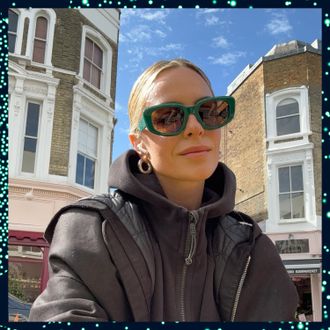
Sophia Amoruso defined the #Girlboss culture that dominated the 2010s. She defined it as in actually coined the term with her 2014 New York Times best-selling autobiography of the same name. But more than that, she was #Girlboss. She turned her eBay store, Nasty Gal, into a $300 million company. Netflix made a show about it. She was on the cover of Forbes as one of America’s richest self-made women. Later that same year, though, in 2016, Nasty Gal would file for bankruptcy. By 2021, the girlboss was declared dead. One of the people doing the declaring was Samhita Mukhopadhyay, former Teen Vogue executive editor, current Cut contributor, author of The Myth of Making It, and host of the In Her Shoes podcast. This week, she’s joined by Amoruso to talk ambition, hustle culture, and the legacy of the Girlboss. To hear more, listen and subscribe for free on Apple Podcasts or wherever you get your podcasts. You can also read highlights from the interview below.
On her 2014 autobiography, #Girlboss:
Sophia: For the most part, I stand behind everything that I said in that book, but there’s a level of naïveté. There’s a fair amount of ego in there. I was in my 20s — I wrote it 13 years ago, almost 14 — and it sounds kind of cult leader-y. It’s like, “You, dear Girlboss, won’t be doing that. You, dear Girlboss, you’re gonna work hard. You’re not gonna spend all your money.” Hearing it again and the way I address the reader does sound pretty cult-y, but you know, I did want it to do well. There was marketing built into the title. It was a hashtag, which sounds super goofy right now, but at the time was like engineering virality on a physical product.
On the double standards women founders face:
Men are expected to be tough guys and lead from the front, and women are expected to lead from the back and inspire people and be more oblique in the way that we influence our teams. And when we hold people accountable, we’re a bitch. When you have to make unpopular decisions you’re evil … there’s an expectation that you’re gonna build some culture that cures everything, that permeates society. And that’s really fucking challenging. And I don’t think that men are — that’s not expected of them, right?
On the legacy of the #girlboss:
I gave it away, right? You make things and you give them away and then they continue doing work and mutate and weave their way through culture and you can only hope that what you put out into the world represents something to someone and that the good outweighs the bad. I know that’s the case with the book and the word. There’s a bunch of overeducated people navel-gazing over that word, but [there’s also] the woman who walks up to me at coffee shops every day in London who says “Your book inspired me to start a business.” That’s the long tail effect … I’m honored that it could inspire people.

